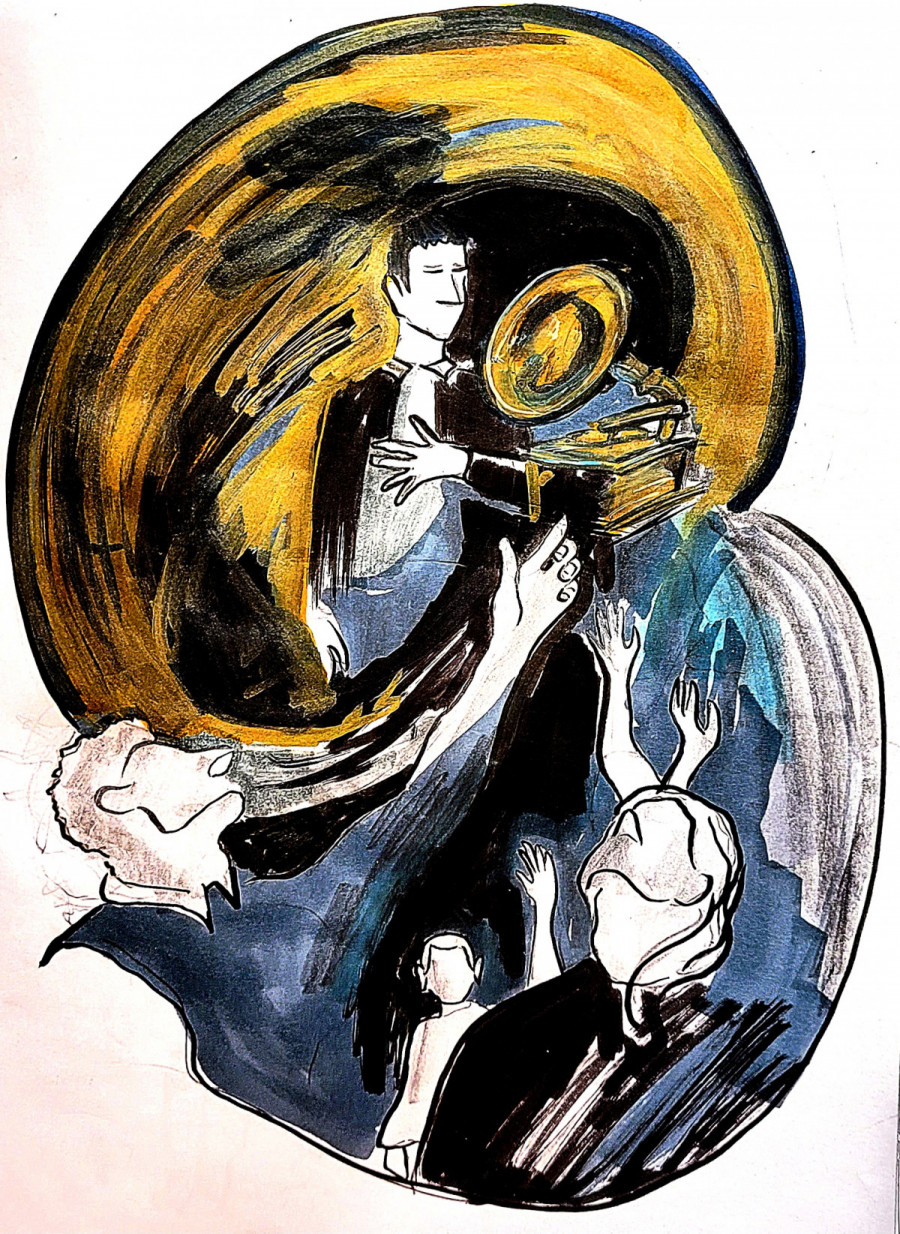The Grammys are run by racists who love to exploit Black Culture
Unveiling the evident discrimination under the glitz and glamour
For years, Black artists have been overlooked at the Grammys. In the 66-year history of the Grammy Awards, only 11 Black artists have won album of the year.
That information shouldn’t sit well with anyone and I feel like we aren't getting anywhere.
It's as if we've been in the same cycle for ages, repeating the same discriminatory actions in the music industry, and it’s not benefitting anyone.
Historically, Black artists have been majorly underrepresented in popular categories, despite having made significant contributions to the music scene. Black musicians have given us genres such as jazz, rock, country and rap. In the late 19th century, African Americans created these genres out of a need for creative expression and cultural identity during a time of significant social change.
However, Black artists continue to be systematically erased and excluded from the musical genres they helped create.
Even though many Black artists have received praise and are at the top of the Billboard music charts, the academy seems to rarely award them. And this trend has gotten worse in recent years.
At the 2020 Grammys, American rapper and record producer, Tyler, the Creator won best rap album for IGOR. Although categorized as a rap album by the academy, Tyler’s fans would disagree.
IGOR is classified as a hip-hop/pop album under a number of platforms. However, the Grammys decided to nominate it under the rap category anyway. Tyler later spoke out and said, although he was grateful for the award, it felt like a backhanded compliment. He also called out the Grammys “urban” category as a politically correct version of the n-word.
Over the years, Black artists have argued that the Grammys often pigeonhole them into specific genres.
The “urban” category has been perceived by Black artists as a catch-all term used to diminish the diversity of sound of Black artists’ music.
The academy refuses to recognize Black artists who are defining the era.
The constant miscategorization plays into the outdated and racialized stereotypes about the type of music Black artists create. Being confined to categories like rap and urban, Black artists are portrayed as simplistic. There is a tendency to associate Black artists with themes of struggle and hardship, overlooking the plethora of issues addressed in their music, like resilience and empowerment.
This also limits the recognition these artists receive. It perpetuates damaging stereotypes about their music and inaccurate portrayals of them.
The concerns raised by artists of colour about the Grammy Awards highlight significant issues within the music industry, particularly regarding representation, recognition and the categorization of music genres.
Black women have played a pioneering role in shaping the music scene. From early blues singers like Ma Rainey and Bessie Smith, who laid the foundation for popular music in the early 20th century, to artists like Ella Fitzgerald, who revolutionized the genre, Black women have been at the forefront of musical innovation. In rock, funk and soul, artists like Tina Turner and Aretha Franklin have pushed boundaries and redefined what it means to be a female artist in a male-dominated industry.
Despite their significant contribution to the music scene, Black female artists also continue to be overlooked.
Upon accepting her award at the 2021 Grammys for Best Record of the Year, Billie Eilish made a statement asking for recognition in the music industry. Eilish supported Meghan Thee Stallion and stated that she should have won that award for her song “Savage” featuring Beyoncé.
This was such an important moment that highlighted the difficulties and injustices faced by Black women in the music industry. Several Black female artists are underrepresented, stereotyped and victims of prejudice in the media — all things that tend to remain hidden.
Billie’s speech was just the latest case in a year-long trend at the Academy of white musicians admitting that the Recording Academy has favoured them over more deserving Black artists.
White-dominated genres such as pop, country, or rock usually win album of the year. But in 1999, one of the greatest artists, Lauryn Hill, took home the Grammy for Album of the year.
And rightfully so.
The Miseducation of Lauryn Hill was the first hip-hop album to win that award. Unfortunately, she was the last Black woman to win Album of the Year.
As one of the most influential artists ever, Beyoncé has repeatedly been snubbed, being nominated four times but never winning.
In 2010, Beyoncé lost to Taylor Swift’s Fearless. In 2015, she lost to Swift again, this time for her album 1989. In 2017, the year Lemonade was nominated to win, she lost to Adele, who won for her third album, 25.
This year Taylor Swift’s album Midnights won the Grammy for Album of the Year, while Beyoncé’s album RENAISSANCE wasn’t even considered as a nomination.
A large amount of Grammys that Beyoncé has received were not even part of the main categories. She has only won Song of the Year once.
Black artists, especially Black women, have had to fight for their spot in the music industry. The academy’s constant failure to adequately recognize and promote Black artists reflects a systemic problem within the music industry — one that marginalizes and exploits Black artists.
This forces Black female artists to conform to stereotypes or specific genres, reducing their creativity and limiting their ability to experiment with their sound. The industry's message to "stay in their lane" perpetuates harmful stereotypes, and also prevents these artists from fully expressing their art and realizing their full potential.
Systemic racism in the music industry manifests itself in a variety of ways. With everything from limited opportunities for artists of colour, to unequal representation in the industry. Despite these challenges, Black artists continue to create groundbreaking music that resonates with people around the world, demonstrating their resilience and talent.




_600_375_90_s_c1.jpg)
_600_375_90_s_c1.JPG)

